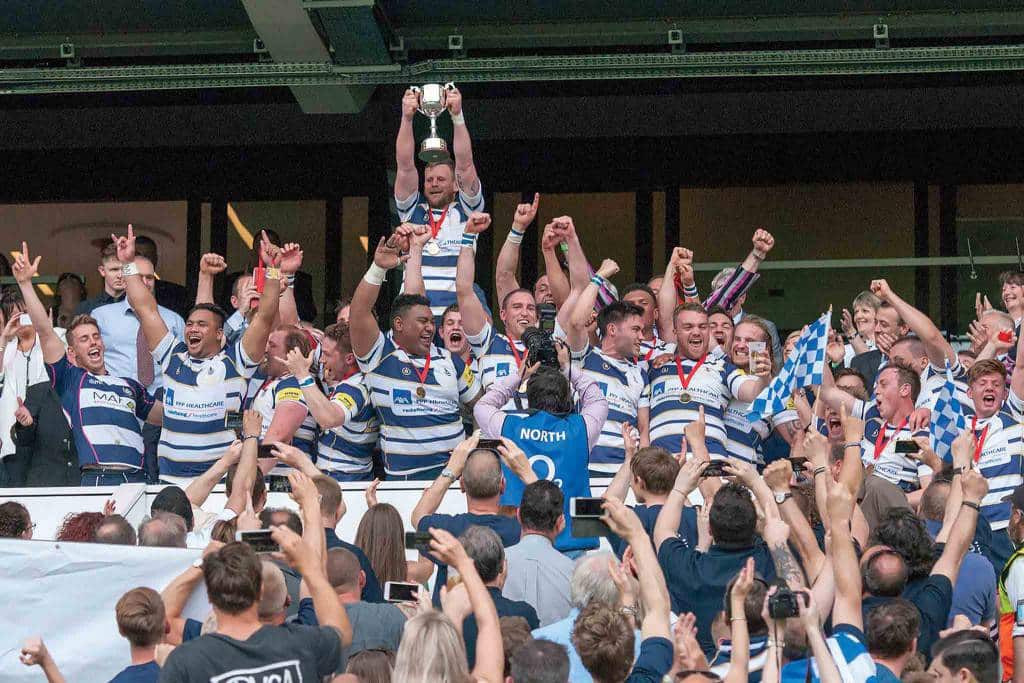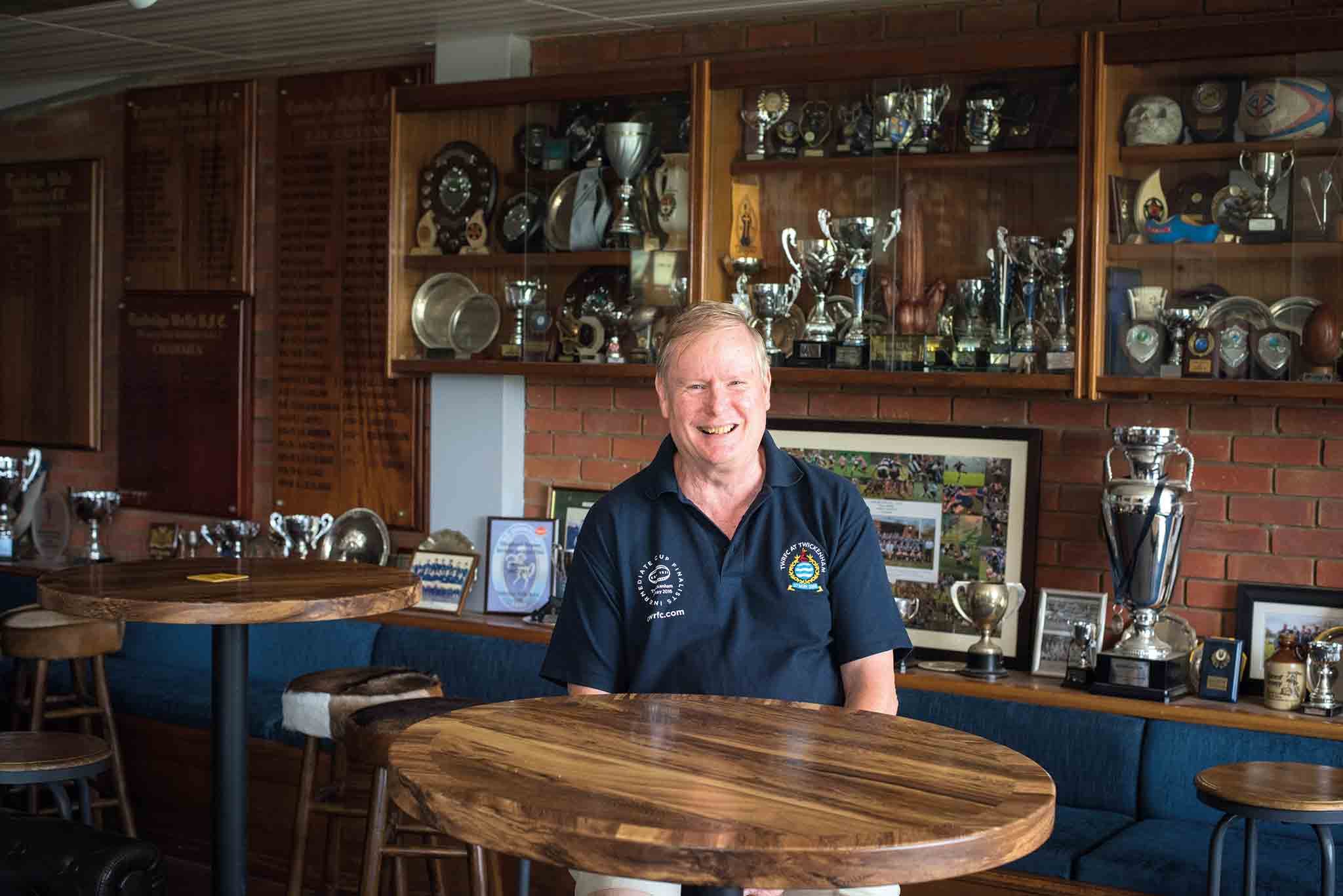Fresh from their Twickenham triumph in the Intermediate Cup, which topped off an ‘unprecedented’ unbeaten season, Tunbridge Wells Rugby Football Club (TWRFC) are looking forward to an exciting future.
With a victory over Maidstone on Saturday under their belts, the new season has already got off to a good start.
But the club is not all about headline-grabbing wins, well-attended matches and popular social events.
None of these things would be possible if it was not for a thriving and well-managed club to support, train, and provide a base for the numerous squads which form Tunbridge Wells RFC.
And underpinning the success of the club, which has a history dating back to the turn of the 20th century, are the dual efforts of balancing the books and investing in the future.
Overseeing this task is the President, Roger Clarke, who has been involved with the club for the past 50 years. He explained the vast sums needed to keep Tunbridge Wells RFC viable and successful.
“We have a two-year investment programme into club facilities which will cost about £110,000,” he revealed.
“Of this, £60,000 alone has been spent on upgrading one of the training pitches with floodlighting and an improved system of drainage to ensure players can use it in all weathers.
“Another £45,000 will be spent on a drainage project for the First XV pitch.”
The money, he explains, comes from three main sources: Tunbridge Wells Borough Council, the Rugby Football Union – the governing body of English rugby – and of course the club itself.
While income from the first two sources is relatively secure and accounts for 66 per cent of the money, the club has to rely on the goodwill of its members and the local community to raise its portion of the funds.

The money it secures comes from numerous sources, such as subscription fees from its 950-plus members, sponsorship, hosting summer training camps and hiring out the clubhouse and bar for events.
Before becoming a limited company this year, the club had an income of roughly £75,000 per annum. But Mr Clarke said the figures are unlikely to be the same during the coming season due to changes in the business model.
“For the old rugby club we earned around £40,000 in commercial and sponsorship income, £30,000 from subscriptions and about £5,000 from donations.
“But we have to be careful to compare oranges with oranges and not apples here, because before we became a limited company there was a combined sports club called the Borderers which included the cricket club and Southborough Wheelers as a renting organisation.”
Much of this money is spent on upkeep of the grounds and facilities at St Mark’s Recreation Ground on Frant Road, and a few permanent members of staff.
This leaves very little profit at the end of the day, so the club relies a geat deal on those who love the sport to help out for free.
“We rely heavily on volunteers and our members to pitch in,” says Mr Clarke. “For example, we have a plumber, an electrician and a lawyer helping out, and club members will put up the coaches in their homes when the training camps are running.”
The community spirit, alongside the support of the council and RFU, has gone a long way to helping the club train up a formidable squad which is about to embark on a new chapter, fresh with even greater challenges than last year following their promotion to London One South Division.
“Following a hugely successful 2015-16 season for the club, with promotion and a national cup win at Twickenham in front of 9,000 town fans, preparation is well under way for the new season a league higher, where the competition will be even greater,” Mr Clarke said.
“The omens, though, are good, with three pre-season victories against Beckenham, Westcliffians and Chelmsford from, if anything, a stronger squad.”








